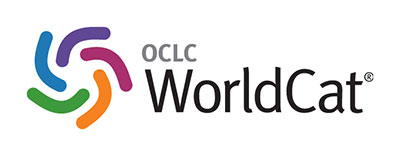Environmental Education Program to improve compliance with Cusco-Peru biosafety standards.
DOI:
https://doi.org/10.26871/killcanasalud.v6i3.1100Keywords:
COVID-19 ; biosecurity; environmental pollution.Abstract
Introduction: The COVID-19 Pandemic has generated changes in the daily activities of people worldwide such as the use of surgical masks, which were previously only used in biomedical careers, increased demand for this product increased pollution of the seas due to the lack of proper handling of this non-biodegradable material. Objective: The objective of this article is to know compliance with biosecurity standards after the implementation of a biosecurity program aimed at students of the Faculty of Health Sciences of the University of the National University of San Antonio Abad Cusco.
Methods: A pre-experience design study was performed, consisting of a non-probability sample, in which a pre-test was applied before the program and a post-test. The data was then analyzed using the chi-square statistical test and the 95% confidence McNemar test. Results: It was observed that knowledge of biosecurity presented a 65% level of average knowledge before the program and after it an increase in the level of knowledge was presented high of 60%, also when applying the Chi-statistical testsquare presented a statistically significant difference in these groups with a value of p=0.000.
Conclusions: The training improves knowledge and compliance with biosecurity standards after the implementation of the environmental education program.
Keywords:COVID-19 ; biosecurity; environmental pollution.
Downloads
References
Dharmaraj S, Ashokkumar V, Hariharan S, Manibharathi A, Show P, Chong C, et al. The COVID-19 pandemic face mask waste: A blooming threat to the marine environment. Chemosphere. 2021 Jun; 272: p. 129601.
Tabah A, Ramanan M, Laupland K, Buetti N, Cortegiani A, Mellinghoff J, et al. Personal protective equipment and intensive care unit healthcare worker safety in the COVID-19 era (PPE-SAFE): An international survey. J Crit Care. 2020 Oct; 59: p. 70-75.
Organización Panamericana de la Salud ; Organización Mundial de la Salud. OPS120. [Online].; 2021 [cited 2022 Julio 28. Available from: https://www.paho.org/es/noticias/17-11-2021-higiene-manos-salva-vidas.
Delgado D, Wyss Quintana F, Perez G, Sosa Liprandi A, Ponte-Negretti C, Mendoza I, et al. Personal Safety during the COVID-19 Pandemic: Realities and Perspectives of Healthcare Workers in Latin America. Int J Environ Res Public Health. 2020 Apr 18; 17(8): p. 2798.
Chen X, Yu B. First two months of the 2019 Coronavirus Disease (COVID-19) epidemic in China: real-time surveillance and evaluation with a second derivative model.. Global Health Research and Policy. 2020 March; 5,7.
Lozano Velásquez AE, Esmilda CVD. Conocimientos y actitudes de adherencia a la bioseguridad hospitalaria. Hospital I Moche –EsSalud. Sciéndo. 2018; 21(2): p. 165-177.
Renault V, Humblet M, Saegerman C. Biosecurity Concept: Origins. Evolution and Perspectives. Animals (Basel). 2021 Dec; 12(1): p. 63.
Sutherland W, Barnard P, Broad S, Clout M, Connor B, Côté I, et al. A 2017 Horizon Scan of Emerging Issues for Global Conservation and Biological Diversity. Trends Ecol Evol. 2017 Jan; 32(1): p. 31-40.
Sutherland W, Atkinson P, Broad S, Brown S, Clout M, Dias M, et al. A 2021 Horizon Scan of Emerging Global Biological Conservation Issues. Trends Ecol Evol. 2021 Jan; 36(1): p. 87-97.
Pulido Capurro V, Olivera Carhuaz E. Aportes pedagógicos a la educación ambiental: una perspectiva teórica. Rev. investig. Altoandin. 2018 Ago; 20(3): p. 333-346.
PROSSER BRAVO G, ROMO-MEDINA I. Investigación en educación ambiental con menores en Iberoamérica: Una revisión bibliométrica de 1999 a 2019. Revista mexicana de investigación educativa. 2019 Jul; 24(83): p. 1027-1053.
Piguave-Peralta IO, Pincay-Pilay MM, Guanuche-Espinoza LL, Mera-Cañola AC. Conocimientos y uso de las normas de bioseguridad en estudiantes del área de salud de una Universidad Ecuatoriana. Dom. Cien. 2020 Noviembre; 6(4): p. 254-269.
Otzen T, Manterola C. Técnicas de Muestreo sobre una Población a Estudio. Int. J. Morphol. 2017 Mar; 35(1): p. 227-232.
Tamariz C, Frank D. Nivel de conocimiento y práctica de medidas de bioseguridad: Hospital San José, 2016. Horiz. Med. 2018 Oct; 18(4): p. 42-49.
Qasmi S, Zafar M, Pirzada S, Saldera K, Turabi A. Assessment and impact of a biosecurity course in raising the awareness of students at the Jinnah post graduate Medical Center, Pakistan. Journal of Biosafety and Biosecurity. 2019 Septiembre; 1(2): p. 93-97.
Parra E, Perales G, Quezada A, Torres P. Salud y seguridad laboral: intervención educativa en trabajadores de limpieza en áreas de investigación. Pública de México. 2019; 61(5): p. 657-669.
Martos M, Mota E, Martos R, Gómez J, Suleiman N, Albendín L, et al. Hand hygiene teaching strategies among nursing staff: A systematic review. International Journal of Environmental Research and Public Health. 2019; 16(17): p. 1-13.
Escobar-Escobar MB, Gacía-García N. Conocimientos sobre la COVID-19 y el lavado de manos. Revista de Salud Pública. 2020 May -June; 22(3): p. 205.
Souza TPM, Rocha ILDS, Cruz YAd, Valim MD, Espinosa MM, Morais RBd. Factores impactantes en la adhesión y conocimiento del equipo de enfermería a las precauciones estándar. Enferm. glob. 2020 Mar; 19(57): p. 413-459.
Das A, Islam M, Billah M, Sarker A. COVID-19 pandemic and healthcare solid waste management strategy - A mini-review. Sci Total Environ. 2021 Jul; 778: p. 146220.
Hantoko D, Li X, Pariatamby A, Yoshikawa K, Horttanainen M, Yan M. Challenges and practices on waste management and disposal during COVID-19 pandemic. J Environ Manage. 2021 May; 15: p. 286:112140.










